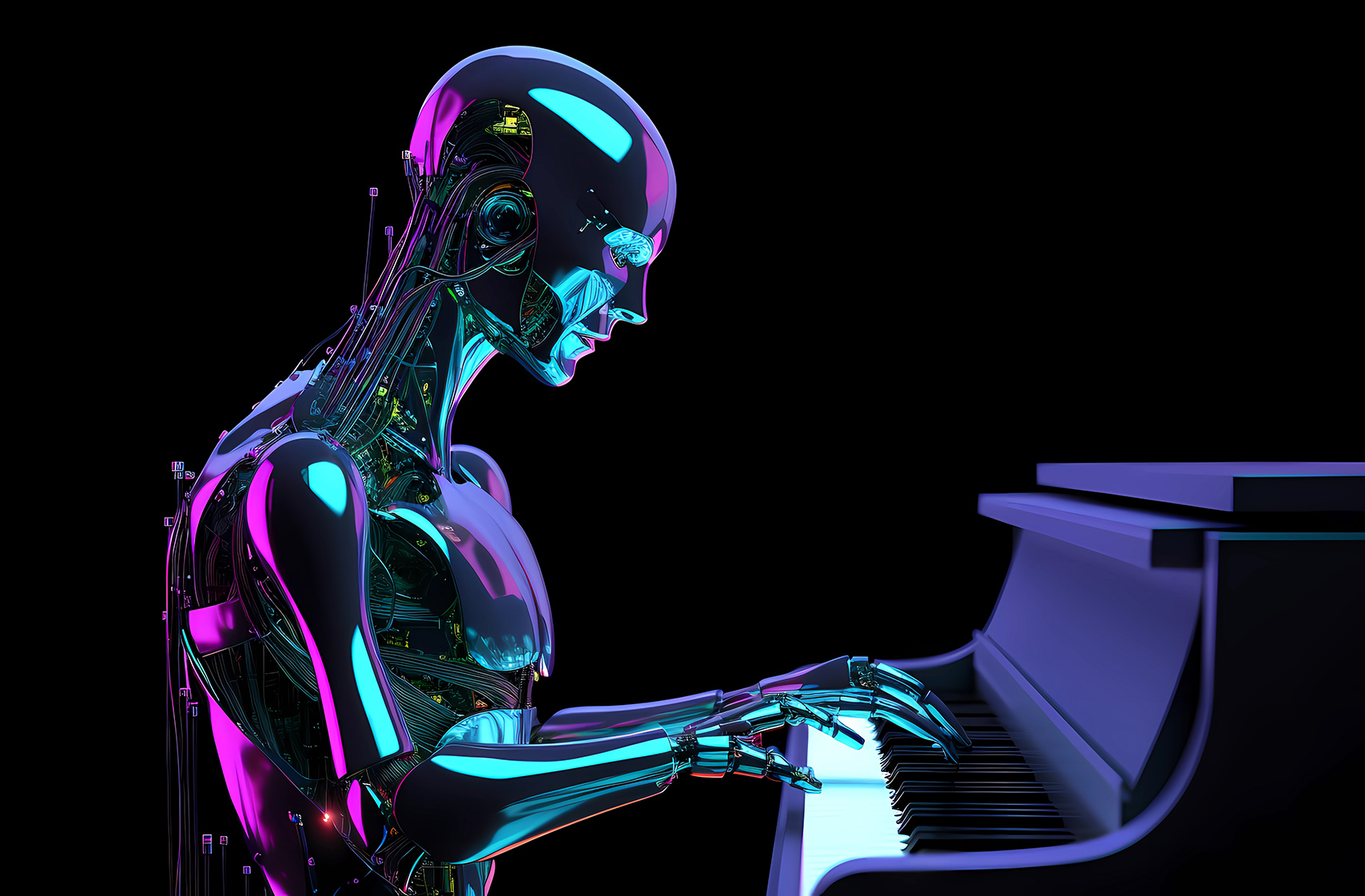Will Artificial Intelligence End the Music Industry or Quite the Opposite?

The future has arrived. In recent years, technological innovations have gained an important role in various sectors, and the music industry is no exception. Artificial intelligence has become a valuable tool that allows artists to redefine their product during creation or post-production, offering a new horizon of opportunities.
One of the biggest challenges in this context is that human activity—in this case, composers, musicians, and producers—could be fully replaced by digital tools, many of which are now highly advanced in following instructions. Is it possible that music in the future will depend solely on technology?
The Challenge of Using Artificial Intelligence in Music
With technology becoming part of everyday life, the question often arises of how things were done before the arrival of tools that simplify processes across various areas. In response, one solution lies in increasing processes and time invested, which is why innovations are gaining more importance.
In music, this question also applies. In recent years, artificial intelligence has entered this world, both for distribution—like artist or song recommendations—and in the production of a piece, either as a source of inspiration or by speeding up creation time.
Over time, AI has become more established in the sector, to the point where it could potentially replace human tasks, reshaping listening experiences. Although this brings some concern, it’s crucial to emphasize that its current use mainly supports production processes.
Nonetheless, recently, songs created entirely with digital tools, simulating well-known artists’ styles, have gone viral on social media. Many artists have condemned these songs; however, they demonstrate the technological progress related to music.
The Horizon of Collaboration: From Traditional to Digital
The success of a song in the most-listened charts involves a long production process with experts in the field. A release, or even thousands within a short period, is possible with AI. Yet, this doesn’t guarantee audience acceptance, which is why the artistic aspect and the musician’s connection with their audience remain essential. Human effort is crucial in this area.
Music created exclusively by digital machines is unlikely to have the necessary impact in the industry or the cultural influence this art currently holds in different societies.
Thus, the future of music seems to point towards a hybrid horizon, where there might be collaboration between humans and machines. Artists who use artificial intelligence to enhance their creativity with a personal touch have the chance to combine both worlds.
AI, instead of replacing musicians, can become the perfect partner for the next generation of creators, adapting to the needs of generations for whom technological advancements are part of daily life.
